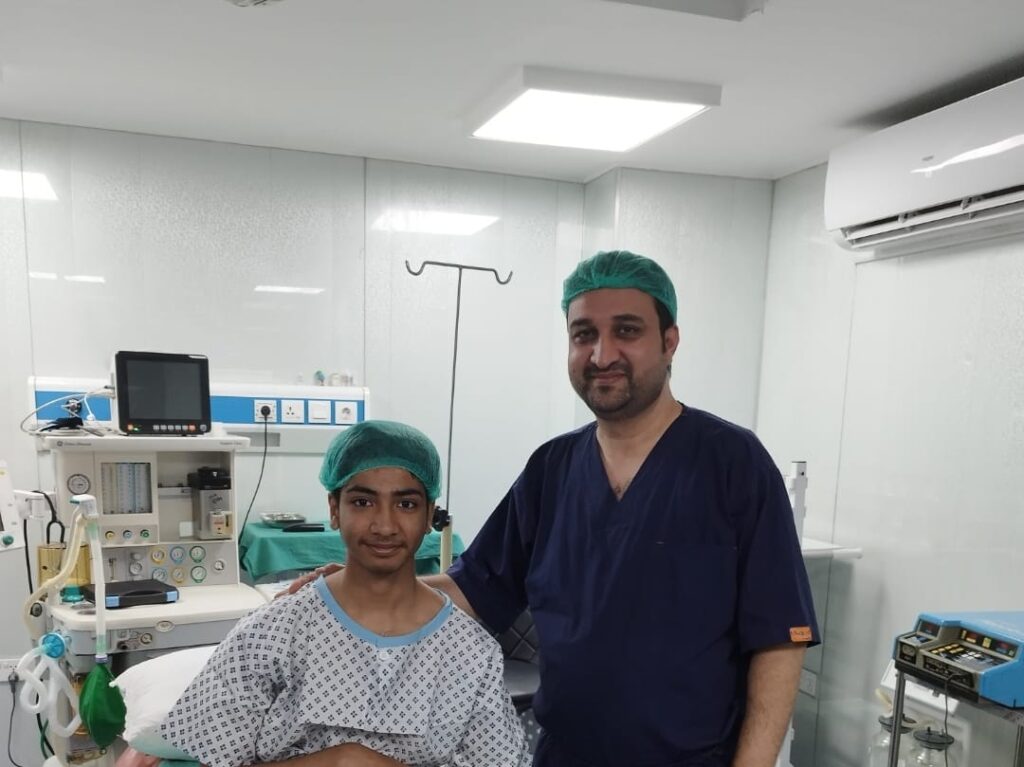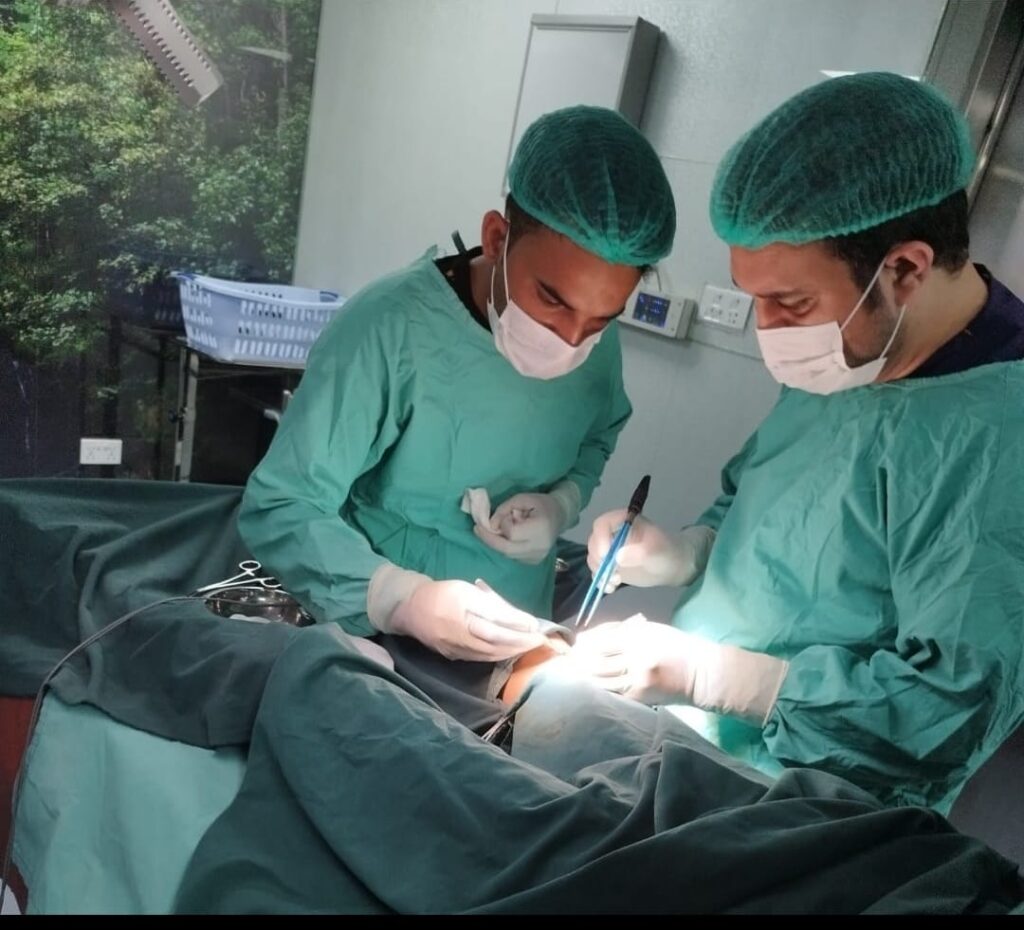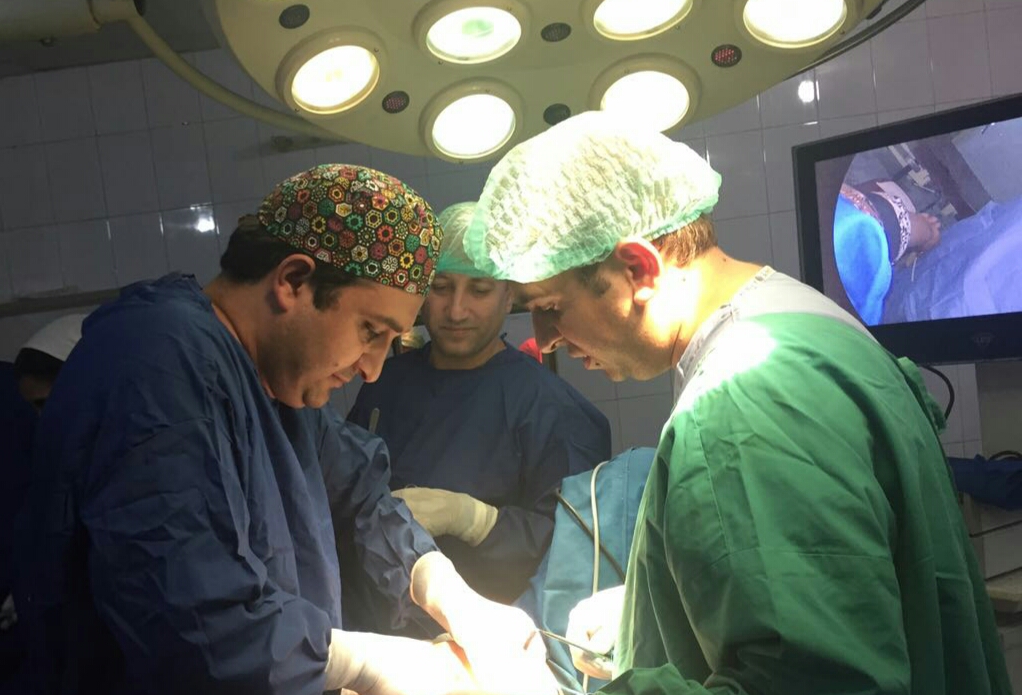- contact@laparoscopyadvice.com
- General Practice Hospital, G-9/2 Islamabad
- Mon - Fri: 10:00 am - 7:00 pm
Visiting Hours
| Mon - Fri: | 8:00 am - 8:00 pm |
| Saturday: | 9:00 am - 6:00 pm |
| Sunday: | 9:00 am - 6:00 pm |
Gallery Posts






| Mon - Fri: | 8:00 am - 8:00 pm |
| Saturday: | 9:00 am - 6:00 pm |
| Sunday: | 9:00 am - 6:00 pm |







Introduction
Tongue cancer is a type of oral cancer that develops in the cells of the tongue. It is one of the most common types of oral cancer, accounting for a significant portion of cases diagnosed each year. Tongue cancer can affect the front (oral tongue) or back (base of tongue) of the tongue and can be classified as squamous cell carcinoma, which arises from the thin, flat cells lining the surface of the tongue.
Understanding Tongue Cancer
Tongue cancer can manifest in various types, including squamous cell carcinoma, verrucous carcinoma, and adenocarcinoma. Each type presents unique characteristics and challenges, influencing the course of treatment and prognosis.
Different Types: Squamous Cell Carcinoma, Verrucous Carcinoma, and Adenocarcinoma
Exploring the features of squamous cell carcinoma, verrucous carcinoma, and adenocarcinoma provides insights into the diverse nature of tongue cancer and the specific challenges associated with each type.
Causes and Risk Factors
The exact causes of tongue cancer are multifaceted, involving both genetic and environmental factors. This section explores these factors and identifies individuals at a higher risk.



Identification of Individuals at a Higher Risk
Highlighting risk factors, such as tobacco use, excessive alcohol consumption, human papillomavirus (HPV) infection, and poor oral hygiene, provides valuable information for both individuals and healthcare professionals.
Signs and Symptoms
Recognizing the signs and symptoms of tongue cancer is crucial for early intervention. From persistent mouth sores to changes in speech, understanding the variations based on the stage of cancer aids in prompt medical attention.
Variations in Symptoms Based on the Type and Stage of Cancer
Distinguishing between symptoms based on the type and stage of tongue cancer assists healthcare professionals in tailoring appropriate diagnostic and treatment plans.
Diagnosis
Accurate diagnosis of tongue cancer involves a combination of clinical evaluation, biopsies, imaging studies, and endoscopy. This section explores the diagnostic procedures and emphasizes the role of these tools in early detection.
The Role of Biopsies, Imaging Studies, and Endoscopy
Underscoring the importance of regular oral screenings and diagnostic tools ensures early detection and improves the chances of successful treatment.
Treatment Options
Managing tongue cancer includes various modalities, such as surgery, radiation therapy, and chemotherapy. This section explores these options, offering individuals a comprehensive view to make informed decisions about their treatment.
Considerations for Surgery, Radiation Therapy, and Chemotherapy
Delving into surgical interventions, radiation therapy considerations, and chemotherapy options provides individuals with the necessary insights for making decisions regarding their treatment.
Impact on Quality of Life
A diagnosis of tongue cancer can have profound effects on an individual’s quality of life, both physically and emotionally. Understanding these effects and exploring coping mechanisms are essential aspects of comprehensive cancer care.
Survivorship and Post-Treatment Care
Rehabilitation and recovery after tongue cancer treatment are essential components of managing this condition. This section guides individuals on what to expect during the survivorship phase and emphasizes the importance of long-term follow-up care and monitoring.
Importance of Long-Term Follow-Up Care and Monitoring
Regular follow-up appointments and monitoring help detect any potential recurrence or long-term effects of treatment, ensuring ongoing health and well-being.
Prevention Strategies
While not all cases of tongue cancer can be prevented, certain lifestyle recommendations may reduce the risk. This section outlines steps individuals can take to maintain oral health.
Lifestyle Recommendations for Tongue Cancer Prevention
Providing practical recommendations on maintaining good oral hygiene, avoiding tobacco and excessive alcohol consumption, and practicing safe behaviors to prevent HPV infection empowers individuals to take proactive steps towards tongue cancer prevention.
Tongue Cancer Awareness and Advocacy
Raising awareness about tongue cancer is crucial for early detection and improved outcomes. Engaging in advocacy for research and support contributes to a broader effort in combating tongue cancer.
The Significance of Raising Awareness About Tongue Cancer
Underscoring the importance of awareness campaigns and education in communities helps dispel myths and encourage proactive health measures.
Frequently Asked Questions (FAQs)
While tobacco use, including smoking, is a significant risk factor for tongue cancer, other factors such as excessive alcohol consumption and HPV infection can also contribute to its development.
Yes, early-stage tongue cancer may be painless, making it essential to pay attention to other symptoms such as persistent sores, changes in speech, or difficulty swallowing.
No, treatment for tongue cancer may involve a combination of surgery, radiation therapy, and chemotherapy. The specific approach depends on the type and stage of cancer.
While most cases of tongue cancer are not directly inherited, a family history of certain genetic conditions or cancers may contribute to an increased risk. Regular screenings are essential for individuals with a family history.
| Mon - Fri: | 9:00 am - 7:00 pm |
| Saturday - Sunday: | Off |
Copyright 2023 Adil's Laparoscopy World | Powered by Dynaamx